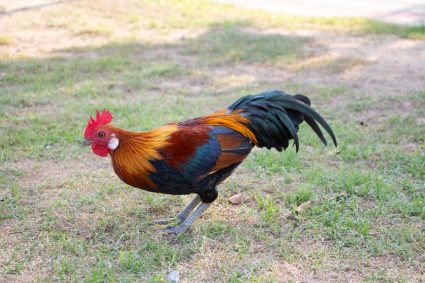
Raccoons are known for their intelligence, dexterity and curiosity. These nocturnal creatures are notorious for rummaging through trash cans, but they can also cause considerable damage to our gardens. If you have noticed signs of raccoons digging up your plants, it’s time to take action. In this comprehensive guide, we’ll explore various methods on how to keep raccoons from digging up plants.
To keep raccoons from digging up your plants, first eliminate food and water sources like unsealed trash cans and pet food. Install fencing around your garden and use repellents such as garlic, cayenne pepper, or blood meal. You can also use motion-activated devices and control grubs in your lawn and flower beds. Planting herbs that raccoons dislike can also be an effective deterrent. If all else fails, consider using commercial raccoon deterrents or professional wildlife removal services.
Why Are Racoons Attracted to Your Garden?
Raccoons are primarily attracted to gardens due to the availability of food, water, and shelter. They are opportunistic feeders and are attracted to unsealed garbage cans, unattended pet food, compost piles, and produce gardens. They also need water for survival, and are attracted to ponds, leaky hoses, and low areas where puddles can form. Female raccoons may be attracted to your garden in search of shelter to raise their young, often finding refuge in openings under porches and decks, sheds, garages, and unoccupied doghouses.
Identifying Raccoon Damage
Raccoons can cause significant damage to various types of plants and parts of the garden. Signs of raccoon damage include holes in the lawn or mulch pile, corn stalks bent to the ground, partially eaten or damaged vegetables, clawed-open melon rinds, broken branches on small trees, sweet corn damage, and torn-up garden or yard.
Effective and Humane Deterrence Methods
Keeping raccoons away from your garden requires a multifaceted approach. Here are some effective and humane methods:
- Eliminate food and water sources: Secure trash cans and avoid leaving pet food outside.
- Install fencing: Use chicken wire or electric fencing around your garden.
- Use repellents: Sprinkle garlic, cayenne pepper, or blood meal around your plants.
- Install motion-activated devices: Use motion-activated water sprinklers, lights, or sound devices.
- Control grubs: Raccoons are attracted to grubs in your lawn and flower beds.
- Plant deterrents: Plant herbs that raccoons dislike such as squash, cucumbers, and oriental poppies.
Commercial Raccoon Deterrents
There are several raccoon repellents and deterrents available in the market. Some recommended products include Natural Armor Animal & Rodent Repellent Spray, Nite Guard Solar, Clever Sprouts Dog Cat Repellent, and Broox Ultrasonic Animal Repeller.
Legal Considerations
Raccoons are protected furbearers in most states, with seasons established for hunting and trapping. It is crucial to check with your state wildlife agency before using any lethal control methods. In some states, trapping and relocating raccoons may be illegal due to the risk of spreading diseases like rabies.
Dealing with a Raccoon Infestation
If deterrence methods fail and you have a raccoon infestation in your home, it is essential to handle the situation safely and humanely. The best approach is to call in professional wildlife removal services. They will assess the situation, determine the entry points, and create a plan for removal.
Conclusion
Keeping raccoons from digging up your plants requires a combination of methods. By implementing these strategies, you can make your garden less attractive to raccoons and reduce the likelihood of them causing damage to your plants. Always remember to handle raccoons safely and humanely, and to check with your local wildlife agency for any legal restrictions.
Frequently Asked Questions
Can raccoons climb over fences?
Yes, raccoons are excellent climbers. They can easily climb over wooden or metal fences. However, they may find it difficult to climb over a smooth surface like a plastic or vinyl fence. Electric fencing can also be effective in deterring them.
Are there any natural predators of raccoons that I can use to deter them?
Raccoons have few natural predators. Coyotes, bobcats, and large birds of prey like eagles and owls may prey on raccoons, but it’s not advisable or practical to try to attract these animals to your property as a form of raccoon control.
Do ultrasonic raccoon repellers really work?
The effectiveness of ultrasonic repellers is often debated. Some people find them effective, while others do not. They work by emitting high-frequency sound waves that are supposed to deter pests. However, raccoons can get used to these sounds over time, rendering the devices ineffective.
Is it safe to handle a raccoon if I find one in my garden?
No, it’s not safe to handle a raccoon. Raccoons can carry diseases like rabies and can be aggressive if cornered or threatened. If you find a raccoon in your garden, it’s best to call a professional wildlife removal service.
Can I keep a raccoon as a pet to deter other raccoons?
Keeping a raccoon as a pet is generally not recommended. Raccoons are wild animals and can be difficult to care for. They also have complex dietary and housing needs. In many areas, it’s illegal to keep raccoons as pets without a special permit.








